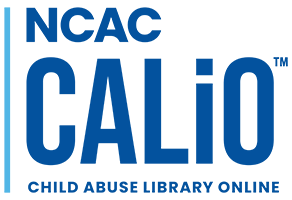Log into CALiO™ or contact the librarians to obtain publications.
Castelli, P., & Goodman, G. S. (2014). Children's perceived emotional behavior at disclosure and prosecutors' evaluations. Child Abuse & Neglect, 38(9), 1521-1532. DOI:10.1016/j.chiabu.2014.02.010
Golding, J. M., Fryman, H. M., Marsil, D. F., & Yozwiak, J. A. (2003). Big girls don't cry: The effect of child witness demeanor on juror decisions in child sexual abuse trial. Child Abuse & Neglect, 27(11), 1311-1321. DOI:10.1016/j.chiabu.2003.03.001
Katz, C., Padden, M. J., & Barnetz, Z. (2016). Emotional language used by victims of alleged sexual abuse during forensic investigation. Journal of Child Sexual Abuse, 25(3), 243-261. DOI:10.1080/10538712.2016.1137666
Lamb, M. E., Brown, D. A., Hershkowitz, I., Orbach, Y., & Esplin, P. W. (2018). Tell me what happened: Questioning children about abuse. John Wiley & Sons.
Leander, L., Christianson, S. A., Svedin, C. G., & Granhag, P. A. (2007) Judges', lay judges', and police officers' beliefs about factors affecting children's testimony about sexual abuse. The Journal of Psychology, 141(4), 341-358. DOI:10.3200/JRLP.141.4.341-358
Lyon, T. D., Scurich, N., Choi, K., Handmaker, S., & Blank, R. (2012). "How did you feel?": Increasing child sexual abuse witnesses' production of evaluative information. Law and Human Behavior, 36(5), 448-457. DOI:10.1037/h0093986
Newman, J. E., & Roberts, K. P. (2014). Subjective and non-subjective information in children's allegations of abuse. Journal of Police and Criminal Psychology, 29, 75-80. DOI:10.1007/s11896-013-9133-y
Stolzenberg, S. N., Williams, S., McWilliams, K., Liang, C., & Lyon, T. D. (2021). The utility of direct questions in eliciting subjective content from children disclosing sexual abuse. Child Abuse & Neglect, 116, 103964. DOI:10.1016/j.chiabu.2019.02.014
